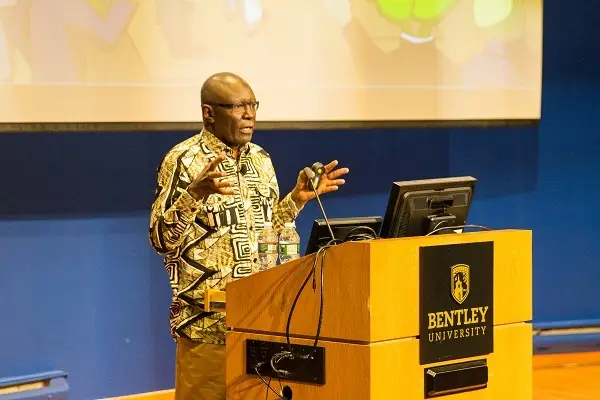This article is based off a presentation at a talk at the Center for Integration of Science and Industry, regarding peoples stresses around emerging technology.
Article Excerpt
“The pace of change in technology and its prospect for disruption is unlike anything we’ve seen in the past,” said Juma. He noted that today’s disruptions to society are immediate and not isolated to the technology industry, and that he expects impending large-scale disruptions and an increasingly prominent global debate over technology’s societal implications.
“Humans are instinctively designed to react to novel things in a way that aims to protect oneself,” said Juma. He went on to say that large tech changes can amplify anxieties and the fear of loss is mainly what drives technology resistance. People often reject technology because it presents changes, big or small, to their immediate world, a world to which they have worked hard to adjust.
How will technology affect employment in the future? Juma was quick to point out that technology typically generates as many jobs as it replaces. New tech not only creates jobs but entire new industries in which jobs will continue to grow.
Rather than fearing unemployment, people should be exploring ways to use these technologies to offset job loss. Juma says that the best decisions about incorporating new technology come from companies’ internal feedback and that it is vital to create a system for employees and managers to express challenges and successes related to technological changes to provide insights on what to do in the future. It is also important that companies utilize management trainings that support transparent communication among all employees.
The debate over new technology will continue to evolve, but Juma reminded students that it’s imperative for communities continue to have conversations and debates to determine what’s in their collective and personal best interest. He urged universities to teach students not only how to interact with new technologies, but how to react to perceptions of their potential impacts in order to be successful in the workplace. Juma pointed out that all reactions to new technology are valid and we must view them as such if we want to make the most positive contributions in our lives and at work.

Relevance
People tend to have a natural resistance to change, and new emerging technologies seem to get a lot of resistance based on the changes that they come with. The article talks about how anxiety around new products stems from perceived impact on that persons established routine. New medical interventions can be a cause of stress for patients because they get used to their treatment methods and are unsure of new methods.
Addressing the stress around new technologies requires clear communication, education, and transparency about the product and how it will affect the users life. By informing the user about the functions, benefits, and the costs of a new technology or medical device, you are able to ease the minds of patients who might be anxious about a new form of treatment.
Ultimately, reducing this resistance to new medical technolgy requires listening to users’ concerns and having transparency. By giving the patient all the information and giving continuous support and communication, this trust can be better built and lower the stresses of using this new technology.
Sources
Consistent access to technology. Verizon Innovative Learning Schools. (2022, July 11). https://verizon.digitalpromise.org/elements-of-success/establish-systems-that-ensure-reliable-and-consistent-access-for-students-and-teachers/
Howarth, J. (2017, November 20). Here’s why people resist New Technologies. Bentley University. https://www.bentley.edu/news/heres-why-people-resist-new-technologies




